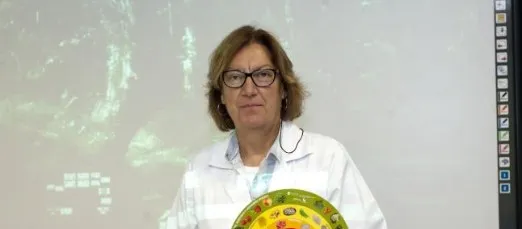Endocrinologists of the A Coruña Hospital will train professionals and patients from health centers to improve the prevention and control of type 2 diabetes, which affects the fifth of those over 64 years old
Almost five and a half million patients only in Spain and more than 350 million worldwide, according to the data of the World Health Organization (WHO), make diabetes into the great epidemic of the 21st century.
Although many do not know, one in ten Galicians in general, and the fifth of those over 64, are affected by this metabolic disorder, which occurs when there is an insulin deficit that causes a high concentration ofblood glucose.
A disorder that can be motivated by multiple factors, such as poor diet, sedentary lifestyle or obesity, and that, without proper treatment, can lead to serious cardiovascular problems and nervous system, complications in view and limbs or neuropathic diseases, among many other ailments.
Specialists and patient associations also warn that diabetes arrives, in many cases, "without hardly warning."It is a "silent" disease, they warn, which begins to give symptoms - very thirst, tiredness or vision problems, among others - when sugar levels are very high.
It is estimated, in fact, that half of patients with type 2 diabetes, who represent 80% of the total, "do not know that they suffer from this ailment," says the head of the Endocrinology Service of the University Hospital Complex of A Coruña (Chuac), Teresa Martínez, hence "to promote the prevention and control" of the disease, mainly, through education, be it "the key".The Chuac Endocrinology Service began three years ago a Diabetic Monitoring Program through Telemedicine, and now it has decided to go "one step further", with the start -up of a training project, a pioneer at the state level, to promote diabetic education from health centers.
The objective of this initiative, which has already begun to develop in outpatient of the city, such as those of Matogrande and O Ventorillo, and in those of other councils such as Sada, Laracha or Carballo, is to improve communication in diabetes among professionals inPrimary care, which are "those who attend to the most important bulk of patients with type 2 diabetes", and send the information about that ailment "to all those affected in the health area."
As?Through informative sessions taught 'in situ' and videoconferences, in which five endocrinologists of the Chuac will explain what is type 2 diabetes, how it is or what their possible complications are, among other issues."We will make special emphasis on the basis of the treatment of this ailment, which are diet and exercise," said Dr. Martínez this morning, who acknowledged that type 2 diabetes has "a genetic component that cannot be avoided", but insisted that "its appearance can be delayed, taking care of food and leading an active life.""With walking comes, what does not arrive is spending the day lying on the couch," said the specialist.
The Chuac Head of Endocrinology explained that the project will be completed with the distribution of didactic material on the disease in health centers.


